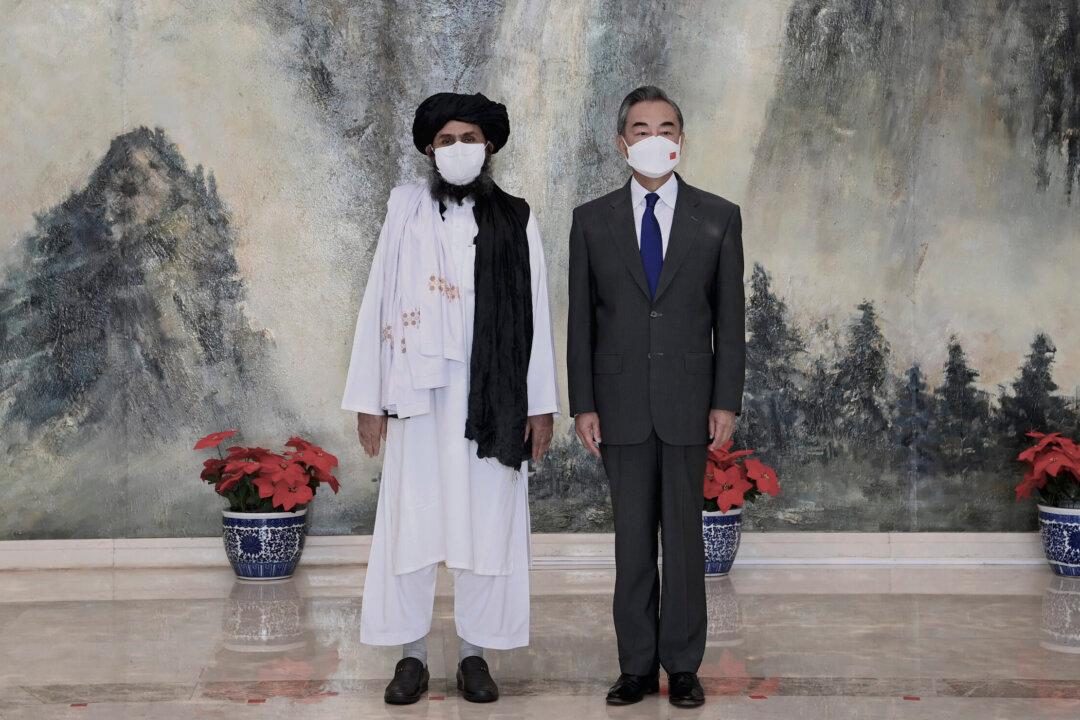The communist regime in China will use bribery and corruption to get what it needs from Afghanistan, as Beijing continues to foster its ties with the Taliban, a China expert said during an EpochTV webinar on Sept. 8.
Grant Newsham, a retired U.S. Marine Colonel and a senior fellow at the Washington-based nonprofit Center for Security Policy, said China has used the same tactics with other countries.





